Mbabane – A national movement to strengthen Eswatini’s economy through local production and entrepreneurship gathered momentum in Mbabane this week as the Made in Eswatini initiative brought together private sector players, government officials, creatives, and development partners to explore strategies for building a sustainable, inclusive economy driven by local talent and innovation.
Held on 29 October at the UN House in Mbabane, the stakeholder engagement was hosted by A Peculiar People with support from the United Nations Development Programme (UNDP). The meeting served as a platform for dialogue, collaboration, and strategic planning among entrepreneurs, business leaders, media professionals, and policymakers on how to boost local enterprise and make “Made in Eswatini” a globally trusted mark of quality and authenticity.
Her Royal Highness Princess Sakhizwe, who graced the event, called on participants to take ownership of the movement’s mission to redefine what qualifies a product or service to bear the Made in Eswatini label. She urged stakeholders to ensure that the mark represents integrity, innovation, and national pride, saying, “Let this be a turning point where we define not only what qualifies a product or a service to bear the Made in Eswatini mark, but also what it means to uphold that mark with integrity, innovation, and pride. Because this is our story – and our story is one of potential ready to be unlocked.”
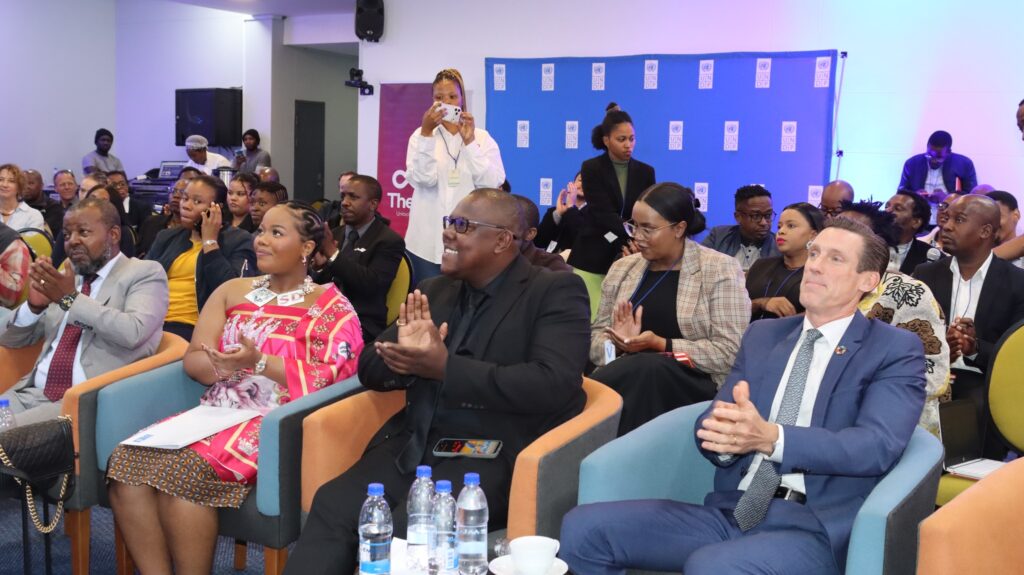
The initiative, led by A Peculiar People, seeks to position locally made products and services at the centre of consumer choice and policy priorities, driving inclusive and sustainable growth. Over the next three years, the movement aims to develop Made in Eswatini into a globally recognised and trusted brand through research, digital innovation, and strategic storytelling.
According to the movement’s executive chairperson, Melusi Zox Dlamini, the platform is about unity and empowerment across all sectors. “We are here to strengthen our relations, to listen, to collaborate, and to learn from one another as we prepare for the next chapter – one that will ensure that every entrepreneur behind a local product or service, no matter how small, has a chance,” he said.
The Made in Eswatini movement is anchored on five key pillars: growing market knowledge, expanding market access, increasing entrepreneurial capacity, building consumer confidence, and promoting sustainability. Through training, mentorship, digital tools, and capacity building, it seeks to create a self-reliant culture that empowers citizens to support and grow the local economy.
UNDP Resident Representative Henrik Franklin said the organisation remains a committed partner in advancing Micro, Small, and Medium Enterprises (MSMEs), describing them as the foundation of job creation and economic resilience. “UNDP is pleased to partner with this movement in its endeavour to accelerate MSME development, unlock market access, and ensure inclusive growth. Made in Eswatini is more than a label – it is a promise that prosperity, resilience, and innovation can be built here at home,” Franklin said.

UNDP’s support for MSMEs includes several tangible interventions such as the Eswatini Youth Empowerment Programme (EYEP), which equips young people with artisanal skills and employability training, and the upcoming MSME Digital Registry and INGELO local certification scheme, which aim to simplify business processes, standardise local production, and open markets for entrepreneurs.
The Municipal Council of Mbabane also committed to advancing the movement’s goals by positioning the capital city as the home of the Made in Eswatini Consumer Fair and Consumer Choice Awards for the next three years. These events are intended to promote collaboration, entrepreneurship, and consumer engagement.
Council Chief Executive Officer, Gciniwe Fakudze, described Mbabane as the heartbeat of Eswatini’s governance and economic activity, saying the municipality has prioritised MSME development, especially for women and youth. “The city connects ideas to opportunity, policy to people, and vision to value. We believe a thriving local economy must be inclusive and future focused,” she said.
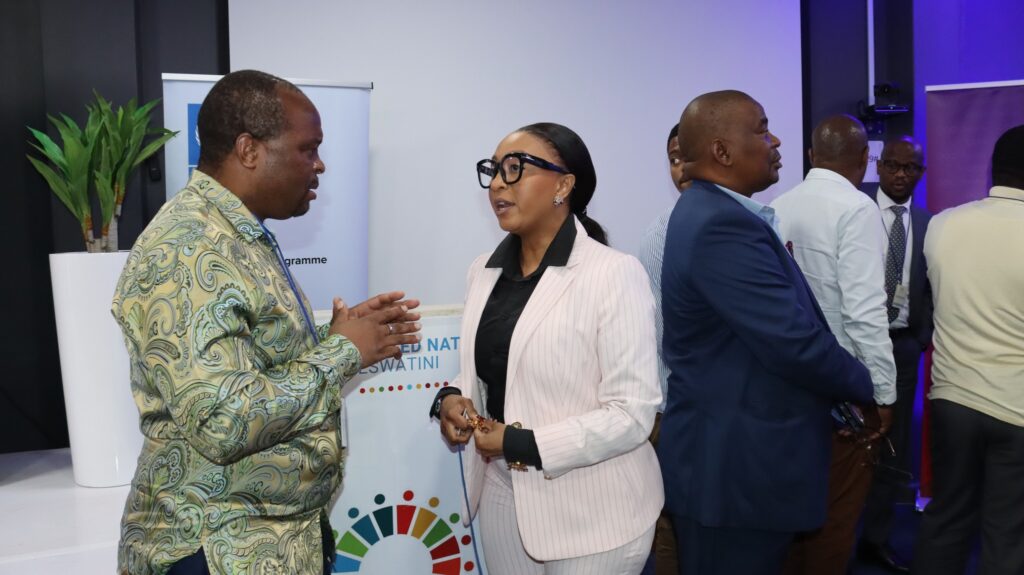
The municipality is already implementing programmes that support entrepreneurs, including loyalty schemes, market intelligence initiatives, leadership training, and sustainability projects that encourage citizens to buy local.
Meanwhile, the Government of Eswatini, through the Ministry of Commerce, Industry and Trade (MCIT), reiterated its continued support for MSME development as a cornerstone of national economic transformation. Director of MSMEs, Mluleki Dlamini, said the ministry is developing policies to expand market access, promote competitiveness, and strengthen value chains across different sectors.
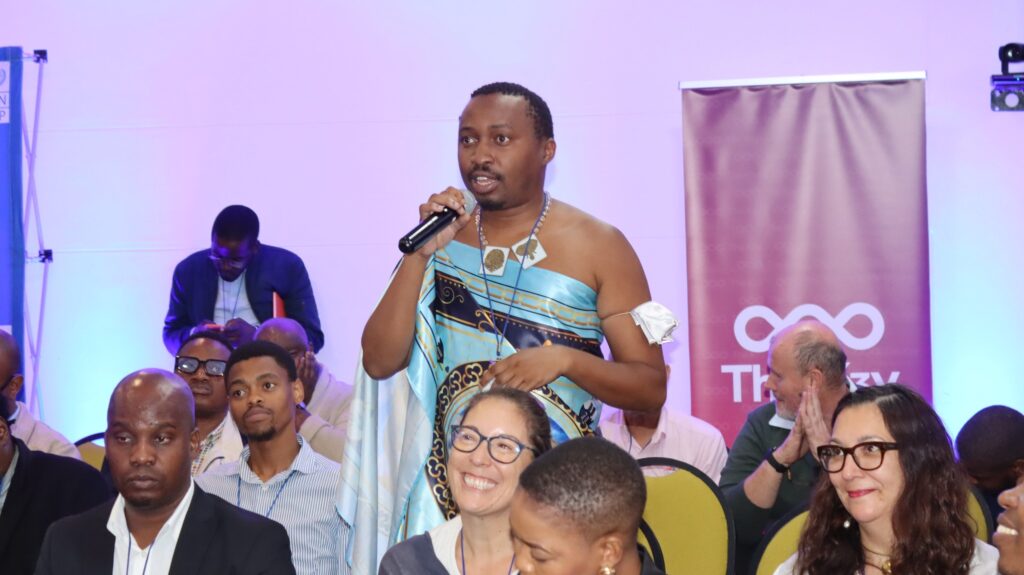
“Our commitment to the growth of MSMEs is firm and unwavering. Our aim is to build a stronger, more inclusive economy powered by the creativity and determination of local entrepreneurs,” he said.
As part of this ongoing commitment, the Ministry of Commerce, Industry and Trade will host the National MSME Conference from 10 to 12 November. The conference will bring together government agencies, private sector leaders, and development partners to turn policy discussions into actionable steps that drive economic empowerment and inclusive growth across the country.


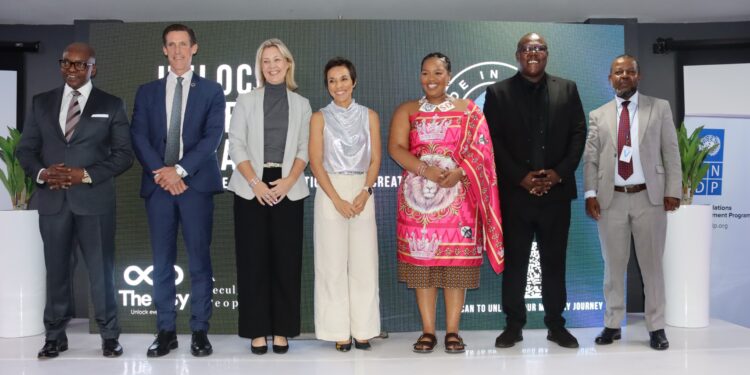




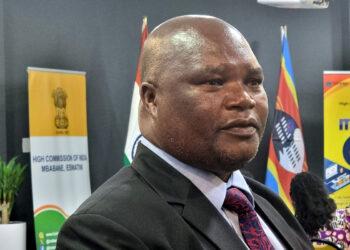



Discussion about this post